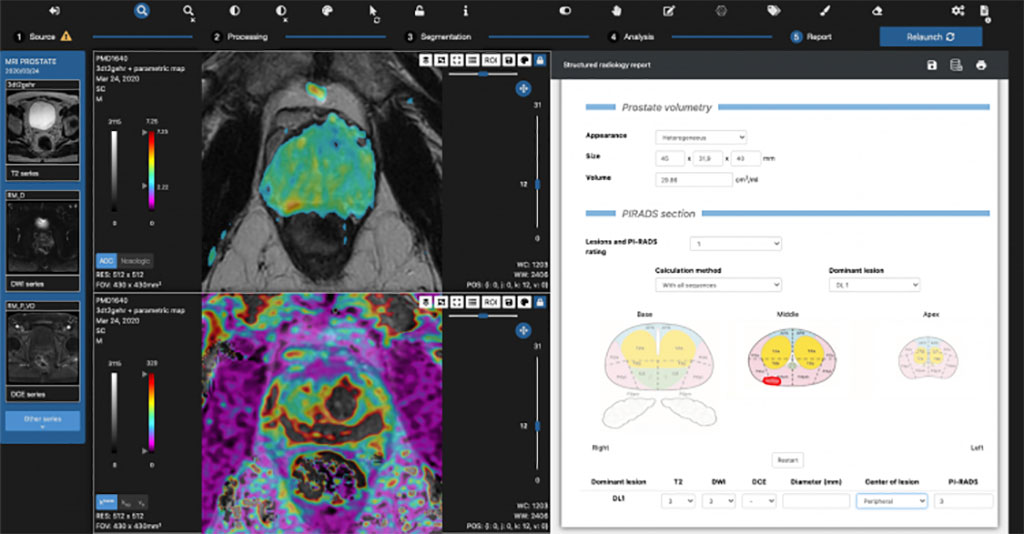New AI Solution Simplifies Prostate MRI Analysis
By MedImaging International staff writers
Posted on 17 Mar 2021
A novel artificial intelligence (AI) algorithm processes magnetic resonance imaging (MRI) data in order to increase diagnostic accuracy and detect prostate cancer (PC) earlier.Posted on 17 Mar 2021
The Quibim (Valencia, Spain) qp-Prostate suite is a non-invasive imaging tool that uses MRI data and advanced computer models to investigate prostate anatomy in extreme detail. The suite automatically detects, identifies, and segments each prostate region, including the transitional zone, peripheral zone, and the seminal vesicles, as well as other areas defined in the PI-RADS v2.1 guidelines. It also automatically runs processing steps, such as arterial input function (AIF) selection, motion correction, and spatial smoothing algorithms in order to improve image quality and minimize heterogeneity across vendors.

Image: The qp-Prostate suite dashboard (Photo courtesy of Quibim)
The web-based DICOM viewer enables users to configure and modify the processing steps. Reporting is also accelerated with qp-Prostate's automated rules engine, allowing an end-to-end workflow. Reports can be sent to the picture archive and communication system (PACS) instantaneously and synced with a patient's folder, so that complete medical information is available to radiologists at any time. Users can edit the standard PI-RADS v2.1 templates and re-launch any analysis if deemed necessary. The tool works with both biparametric (T2+DWI and T2+DCE) or multiparametric (T2+DWI+DCE) MRI exams.
“We challenged ourselves to build the world's finest AI platform for prostate imaging, to help increase diagnostic precision as a tireless companion to the clinician, helping transform the men's care journey,” said Angel Alberich Bayarri, MD, CEO of Quibim. “Instead of analyzing the prostate as a whole, the solution can segment the prostate's transitional zone, peripheral zone and seminal vesicles, as well as other regions to extract clinically meaningful quantitative information from the MRI examination as a potential aid for early and accurate clinicians' diagnosis.”
“MRI is the perfect modality for prostate evaluation, however only 5% of radiologists are trained to interpret prostate MRI data,” said Professor Luis Martí-Bonmatí, MD, co-founder of Quibim. “qp-Prostate shortens the learning curve and reduces the workload for radiologists, potentially increasing productivity by reducing image reading time, and generates more meaningful insights for patient diagnosis and monitoring.”
Early detection of PC is an important, but challenging task for oncologists, as early-stage disease is asymptomatic. Current diagnostic tools, such as prostate-specific antigen (PSA) markers in blood have limitations, and may result in patients undergoing invasive biopsies or even unnecessary surgeries.
Related Links:
Quibim














